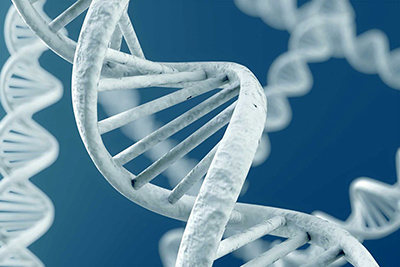Novogen anti-cancer drug breakthrough
EXTRA >>
JOINT US-Australian drug discovery company, Novogen Limited, has developed its potential anti-cancer drug Anisina to a stage where it is expected to be fast-tracked to the clinic sometime next year.
In trials so far, Anisina has shown it can deliver potent anti-tumour effect in vivo, human melanoma tumours have responded positively, and there has been no observed toxicity.
Novogen, which is listed on both the Australian Securities Exchange and the NASDAQ, announced in June that its candidate cytotoxic chemotherapy drug, Anisina, has proved an effective anti-cancer agent in animals. 
Anisina targets the cytoskeleton of cancer cells. This is the same target of the most widely used chemotherapy drugs in cancer, the taxanes and vinca alkaloids.
These widely used existing drugs are standard-of-care for some of the most common cancers in adults embracing both solid cancers – such as breast, ovary, prostate, lung, bladder, and testicle – and non-solid cancers such as acute leukaemias and Hodgkin’s Disease. They are also used in pediatric cancers such as neuroblastoma and Wilm’s tumour. They are also widely used ‘off-label’ across most forms of cancers following failure of standard of care drugs.
Research has shown that despite their common use, the taxanes and vinca alkaloids come with the significant disadvantages of being non-selective – resulting in significant patient side-effects – while not working in many forms of cancer and readily inducing resistance in cancer cells.
Novogen identified the clear clinical need to improve on both the efficacy and safety of these commonly used drugs – and the company is confident Anisina has the features to meet that need across a range of cancer types.
The breakthrough came 10 years ago with the discovery by Professor Peter Gunning and Dr Justine Stehn at the University of New South Wales (Sydney, Australia) of the role of a structural protein known as Tmp3.1 in the function of microfilaments.
Cancer cells are far more reliant on Tmp3.1 for the integrity of their microfilaments than are normal cells. Anisina specifically targets Tmp3.1, destroying the microfilaments of cancer cells with proportionally much less effect on normal cells.
The taxanes and vinca alkaloids target a structural component of the cytoskeleton known as the microtubule. De-stabilizing this structure prevents the cancer cell from dividing and promotes its death. Anisina is a first-in-class drug candidate that targets the other main structural component of a cancer cell known as the microfilament.
There is a 20-year history of attempts to produce drugs against microfilaments. The commercial success of the taxanes and vinca alkaloids in the 1970s validated the cancer cell's cytoskeleton as a target for anti-cancer drugs, making the destruction of the microfilaments an obvious alternative drug target. These attempts failed because of the inability to limit the destructive effect to cancer cells’ microfilaments, with loss of muscle function being a pronounced toxic side-effect.
“This result clears the way for Anisina to enter the clinic,” Novogen Anti-Tropomyosin Program director Dr Stehn said, “The potent effect observed here of the drug on a cancer as difficult to treat as malignant melanoma, combined with the lack of any obvious toxicity of the drug, justifies our earlier speculation that destroying a cancer cell's microfilaments would yield an equivalent therapeutic benefit to destroying the microtubules, but without the toxicity of the latter.
“Large-scale manufacture of the compound now is underway with a target of being in a first-in-man study in 2Q16.”
ends

